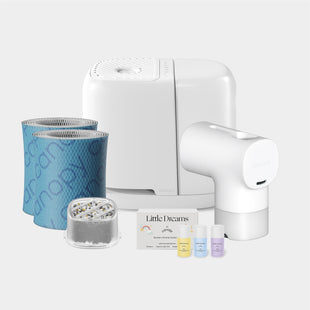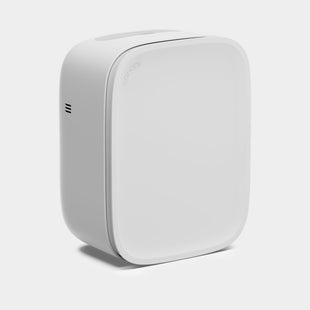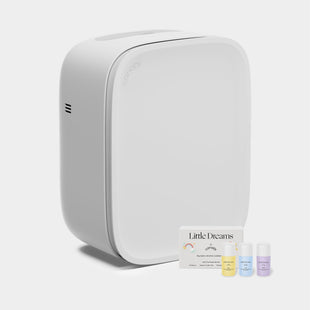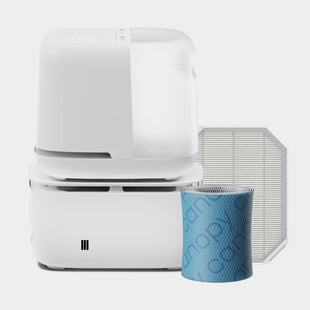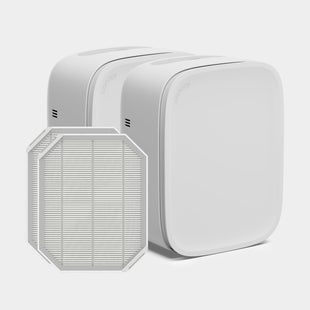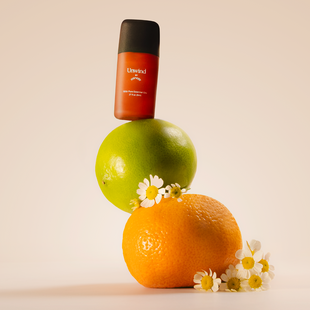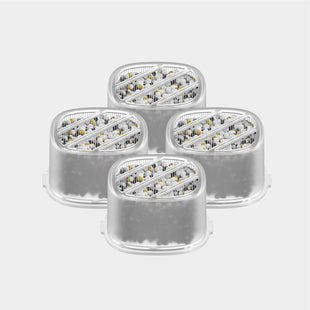Do you suffer from sporadic allergies or chronic allergic rhinitis? Whether you experience allergy symptoms infrequently or regularly, an essential oil diffuser for allergies can dramatically improve your allergy symptoms.
How do essential oils work? Why does using an essential oil diffuser for allergies help to improve your allergy symptoms? What essential oil blends will reduce your symptoms and improve your quality of life during the allergy season?
We answer all of your questions about how and why to use a diffuser for allergies. Let’s start at the beginning: how do essential oils work?
How Do Essential Oils Work?
Essential oils are highly concentrated, aromatically potent oils extracted from various parts of a plant through distillation or mechanical pressing. Distillation is a process that uses high force to separate a plant’s essential oils from the water-based compounds. This extraction process isolates the therapeutic properties of the plant to create a healing elixir.
In order to fully extract the medicinal qualities of an essential oil, the oil must be diffused or applied topically. Each essential oil application bears therapeutic benefits, though in significantly different ways.
Diffusion
Essential oil diffusion or “aromatherapy” consists of dispersing essential oils molecules into your surroundings to stimulate your olfactory system, which will ultimately affect other areas of your body. There are many ways to diffuse essential oils including: heat, evaporation, or ultrasonic vibration. Ultrasonic diffusers are the most common form of diffusion and disperse an essential oil infused mist through your space.
Topical Application
Essential oils can also be applied topically to the face or the body. Due to the potent nature of essential oils, it is always recommended to use a carrier oil when applying essential oils to the skin.
What Are the Benefits of Essential Oils for Allergies?

Between 40 and 60 million Americans suffer from allergic rhinitis or seasonal allergies with numbers steadily on the rise year after year. When mild allergies are left untreated, it can cause congestion, runny nose, headaches, chronic sneezing, and more. If severe allergies are left untreated, it may result in hospitalization or a life-threatening condition.
While the concept of avoiding potential allergen triggers sounds nice, it can be nearly impossible through the changing seasons, impaired immune systems, food-related inflammation, and environmental pollution. Cue: essential oils.
Essential oils can help you to effectively treat and manage your allergy symptoms and mitigate allergic response. Allergens most commonly affect the nasal cavity, the throat, the lungs, ear cavities, the skin, and the stomach. There are many benefits of regular essential oil use for allergies, which include:
-
Regulate and improve immune system activity
-
Treat skin rashes and hives
-
Reduce the presence of common allergens in the home
-
Combat inflammation in the body
-
Detoxify the body against infection including bacteria, harmful toxins, parasites, microorganisms, and more
-
Improve respiratory conditions
The Best Essential Oil Blends for Allergies
Introducing a diffuser for allergies can improve and treat your symptoms, among many other benefits. Each essential oil has unique therapeutic properties that, when paired with comparable essential oils in a diffuser, can dramatically improve your quality of life during allergy season and beyond.
The following diffuser blends draw from the most effective essential oils for allergies. Keep these essential oil combinations on hand during the spring and summer months, or any other time of year that triggers your allergy symptoms.
Diffuser Blend #1: Tea Tree, Lavender, and Eucalyptus
Tea tree is an antiseptic, antibacterial, antifungal essential oil that can actually destroy airborne bacteria and pathogens that dwell in your home. Incorporating tea tree into any diffuser blend will purify your home air and work to kill mold spores and any other airborne contaminant.
Lavender essential oil is most commonly known for its calming and soothing properties, and widely used in infant personal care products. While lavender can lull an antsy child (or adult, for that matter) to sleep, the calming properties of this essential oil can do wonders on bodily inflammation, too. In fact, a study published in Life Sciences revealed that lavender essential oil prevented allergic inflammation of the airway in a murine model of asthma.
Lastly, but certainly not least is eucalyptus essential oil. Eucalyptus essential oil is one of the most popular essential oils second to lavender… for good reason. This powerful essential oil can reduce inflammation in the airways, improving circulation and improving allergy symptoms. Additionally, eucalyptus works to cleanse the body of toxins, which could trigger an allergic response.
Diffuser Blend #2: Basil, Lavender, and Lemon
Lavender, as we discussed in diffuser blend #1, can calm inflammation in the airways and soothe a scratchy throat or painful cough. In this blend, we introduce basil and lemon essential oils, which are both effective essential oils for allergy sufferers.
A study published in Letters of Applied Microbiology revealed that basil essential oil reduces pain and inflammation, detoxifies the body, and can kill bacteria, yeast, and mold that can ultimately lead to damage of the respiratory tract.
Lemon is an antibacterial essential oil that can reduce the presence of allergen triggers in your home air and support lymphatic drainage. In addition, lemon essential oil can prevent the growth of bacteria and improve the immune system by stimulating the liver and flushing toxins from the body.
Diffuser Blend #3: Eucalyptus, Peppermint, and Tea Tree

While we mentioned both eucalyptus and tea tree in diffuser blend #1, this diffuser blend for allergies has a slightly different formula incorporating peppermint as the heavy hitting essential oil. This blend works particularly well if you are suffering from nasal or chest congestion, runny nose, or painful cough.
Peppermint essential oil has many of the same properties of eucalyptus essential oil and is often used to ease the symptoms of minor colds, chronic cough, bronchitis, sinusitis, and asthma. This powerful essential oil serves as an antispasmodic, can expel phlegm, and reduce inflammation, and which alone can radically improve allergy symptoms.








